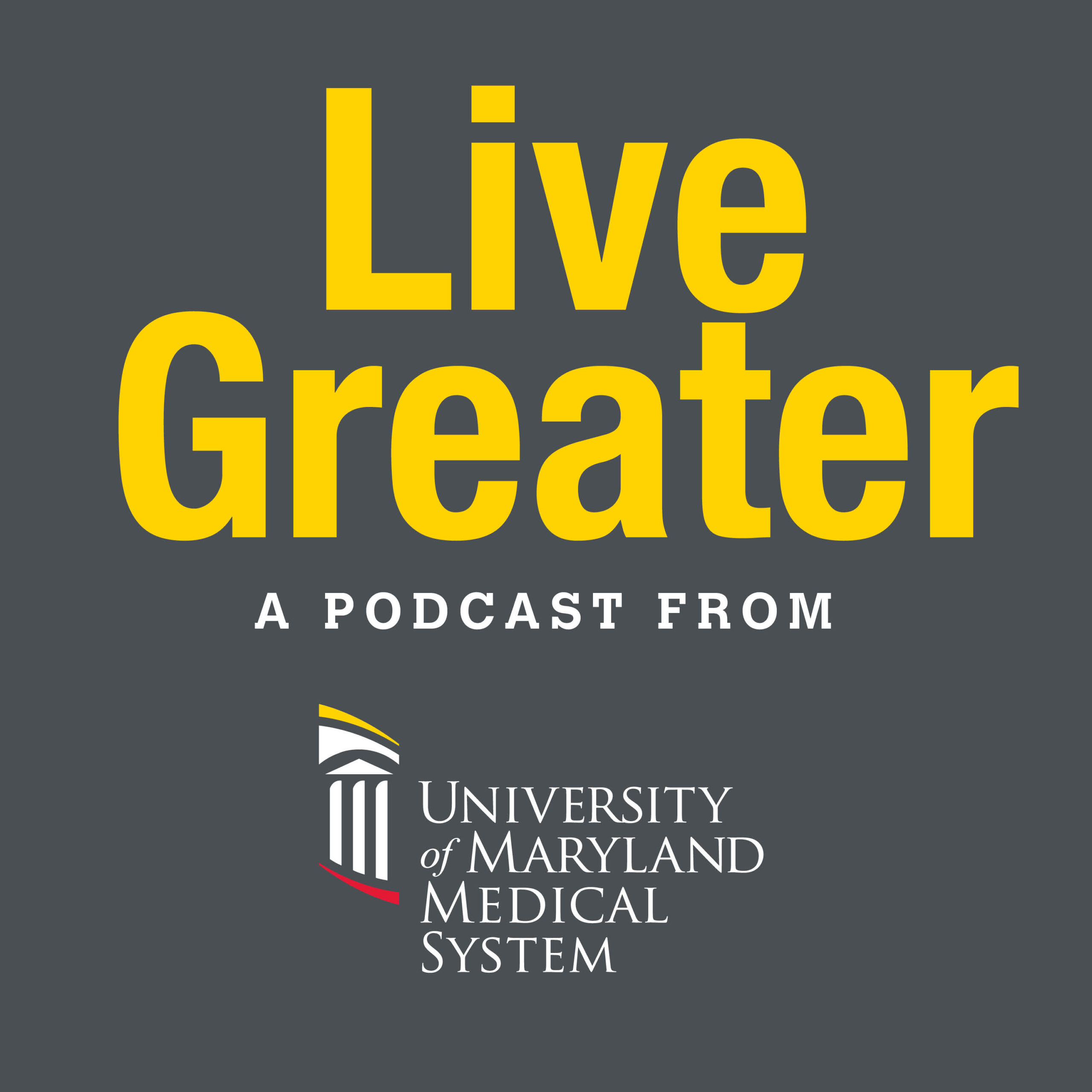CONSUMER CASE STUDY
Live Greater:
Award-Winning Podcasts That Reach, Engage, and Educate
How the University of Maryland Medical System used podcasts to showcase provider expertise, reach new audiences across multiple channels, and earn national recognition with award-winning health and wellness content

Problem
The University of Maryland Medical System was already producing health and wellness content, but it was limited to blog articles and lacked direct quotes from providers. They needed a format that allowed their experts to dive into more nuanced topics that don’t easily fit into short blog posts. In addition, they wanted a way to showcase provider expertise earlier in the patient journey while diversifying their content strategy beyond static blogs and email campaigns.
Limitations
The content strategy was confined to short blog articles that lacked provider voices and the depth needed to explore more nuanced health topics. Reliance on static blogs and email campaigns limited opportunities to engage with a broader audience.
Challenge
The University of Maryland Medical System needed a way to showcase provider expertise and reach audiences earlier in the funnel who weren’t yet ready to choose a care provider.
Solution
The University of Maryland Medical System started the Live Greater podcast as a flexible new digital marketing tool to highlight provider expertise and meet audiences where they already listen and learn. By publishing both audio and video podcasts on YouTube and their website while repurposing them across email, social, and print, their messaging reached wider audiences, matched different learning styles, and gained strong organic discovery. With DoctorPodcasting managing production and promotion, the team simply brought in their experts while DP handled the heavy lifting.
Showcasing Expertise:
Podcasts gave the University of Maryland Medical System a modern platform to highlight provider voices and share trusted health information in ways other channels could not.
Meeting Audiences Where They Are:
By publishing audio and video podcasts on YouTube and repurposing content across email, social, and print, their messages reached wider audiences and different learning styles.
Seamless Support:
With DoctorPodcasting managing production and promotion, they focused on bringing in experts while DP handled the heavy lifting.
Results
The University of Maryland Medical System built a diversified content library, increased physician enthusiasm, and grew audience reach—especially through YouTube recommendations on health topics like COPD and lung health. Recognition followed with multiple national awards, solidifying podcasts as their most versatile and effective content channel.
Expanded Reach:
Podcasts attracted new audiences across YouTube, email, social, and print, with strong organic discovery on key health topics.
Provider Engagement:
Physicians embraced the format, many becoming repeat contributors who valued the ease and exposure.
Versatile Content:
Episodes were repurposed into articles, social posts, and more, making podcasts their most adaptable content channel.
Awards
The University of Maryland Medical System podcast has earned multiple national honors, including Platinum and Gold awards from the eHealthcare Leadership Awards, Healthcare Ad Awards, and Healthcare Digital Marketing Awards.
- Platinum – Best Healthcare Podcast (eHealthcare Leadership Awards)
Gold – Podcast (Healthcare Ad Awards, multiple years)
Gold – Podcast (Healthcare Digital Marketing Awards)
“As marketers, we understand that not everyone learns the same way, gets their
information from the same places, or even searches using the same keywords. By
diversifying your content mix, health care organizations can make themselves and their
messages more accessible and more available.
Offering podcasts is a very important
type of content that reaches consumers who are auditory learners or like to listen to
useful information on their commutes or runs or during their kids’ soccer games.
Podcasts are also very versatile; they can be re-purposed into articles, posted on
websites, social media, and turned into QR codes for print material. They can be used
on traditional radio or as part of a media kit.”
— Rebekah Owens, Content Marketing Manager, University of Maryland Medical System
